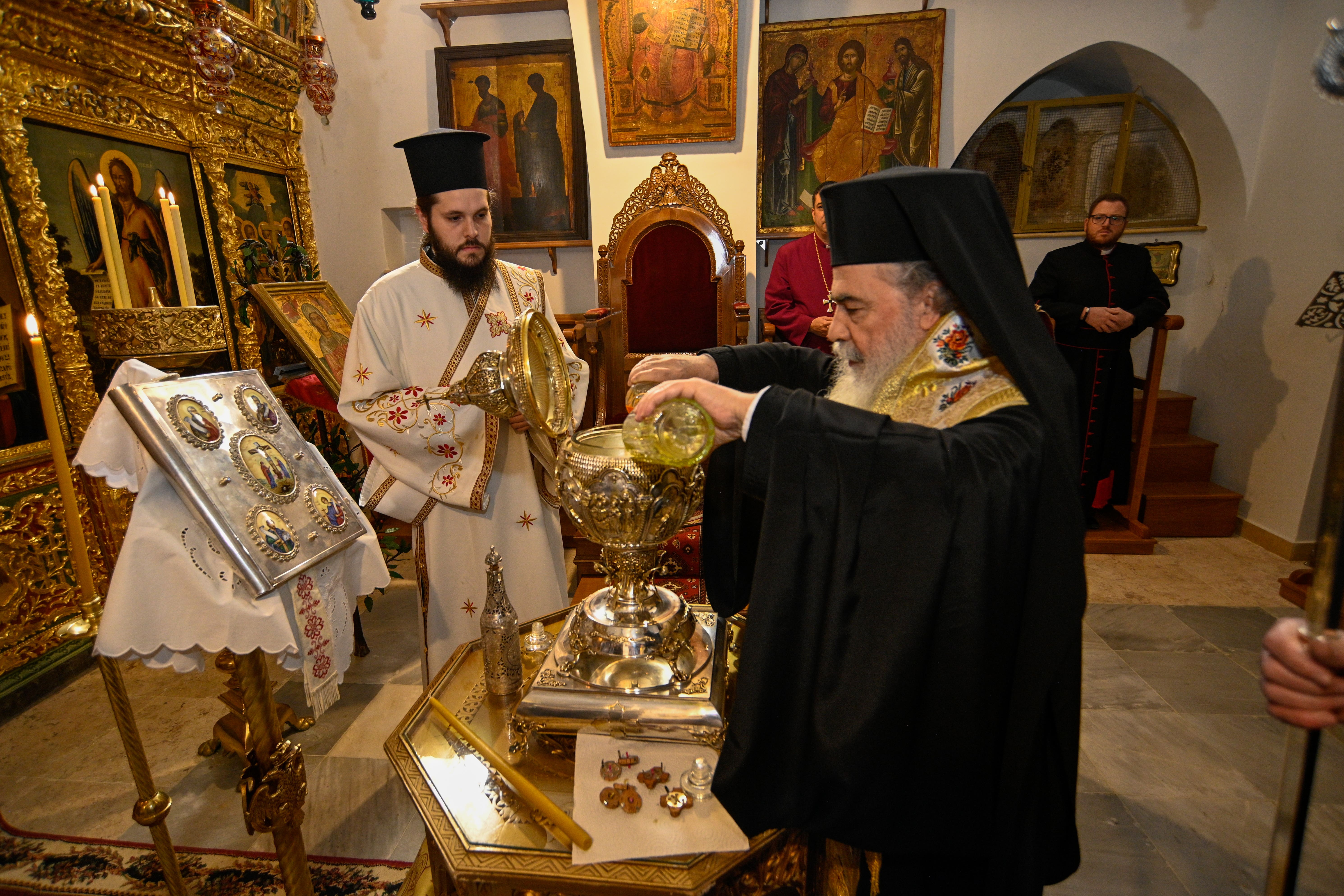‘Holy oil’ used during King Charles coronation will no longer include ambergris from whale intestines
Previous versions of the ‘holy oil’ included civet oil, from the glands of small mammals

Your support helps us to tell the story
From reproductive rights to climate change to Big Tech, The Independent is on the ground when the story is developing. Whether it's investigating the financials of Elon Musk's pro-Trump PAC or producing our latest documentary, 'The A Word', which shines a light on the American women fighting for reproductive rights, we know how important it is to parse out the facts from the messaging.
At such a critical moment in US history, we need reporters on the ground. Your donation allows us to keep sending journalists to speak to both sides of the story.
The Independent is trusted by Americans across the entire political spectrum. And unlike many other quality news outlets, we choose not to lock Americans out of our reporting and analysis with paywalls. We believe quality journalism should be available to everyone, paid for by those who can afford it.
Your support makes all the difference.The oil used to anoint the King and Queen Consort Camilla in the coronation on 6 May will be cruelty-free.
This part of the ceremony is said to be one of the most sacred of the day’s rituals but will reflect modern anti-animal cruelty sentiments, according to a statement published by Buckingham Palace.
Previous versions of the “holy oil” have included civet oil, from the glands of small mammals, and ambergris from the intestines of whales.
This oil was used at the Coronation of Queen Elizabeth II in 1953 and is based on a formula that has been used for hundreds of years.
The altered formula for the holy oil for King Charles and Queen Consort Camilla’s coronation reflects concerns about animal cruelty and the need to protect wildlife.
The new formula is made with olive oil, pressed just outside Bethlehem. It has been perfumed with essential oils including sesame, rose, jasmine, cinnamon, neroli, benzoin and amber, as well as orange blossom.
The “chrism oil” was created using olives harvested from two groves on the Mount of Olives, a mountain ridge to the east of Jerusalem’s Old City, a place that holds religious importance to Christians.
The anointing of the King is reminiscent of a christening or the ordination into religious orders, with the monarch being symbolically touched with holy oil on the head, chest and hands.

The announcement comes after uncertainty looms over whether Prince Harry and his wife Meghan Markle will attend the coronation.
King Charles III has reportedly officially invited the Duke and Duchess of Sussex to his and the Queen Consort’s coronation this spring.
A spokesperson for Prince Harry and Meghan Markle told The Times that they have received “email correspondence” about the coronation, but no decision has been disclosed about whether they will accept the invitation or not.
It comes after reports that the King may offer the couple a suite of rooms in Buckingham Palace that previously belonged to the Duke of York, after asking them to vacate their UK residence, Frogmore Cottage.
It is understood that the King has instead offered the keys to Frogmore Cottage to his disgraced brother, Prince Andrew, who is said to be “resisting” any attempt to move him out of his current home, the Royal Lodge.
Read more about whether the Sussexes will attend the ceremony here.



Join our commenting forum
Join thought-provoking conversations, follow other Independent readers and see their replies
Comments